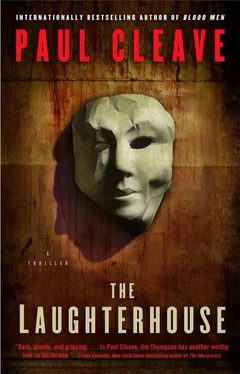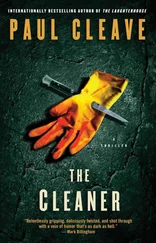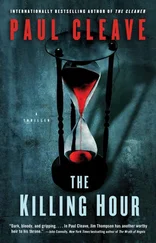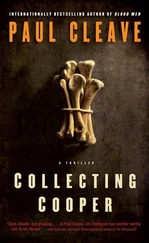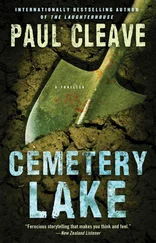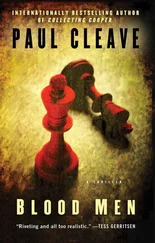Paul Cleave - The Laughterhouse
Здесь есть возможность читать онлайн «Paul Cleave - The Laughterhouse» весь текст электронной книги совершенно бесплатно (целиком полную версию без сокращений). В некоторых случаях можно слушать аудио, скачать через торрент в формате fb2 и присутствует краткое содержание. Год выпуска: 2012, ISBN: 2012, Издательство: Atria Books, Жанр: Триллер, на английском языке. Описание произведения, (предисловие) а так же отзывы посетителей доступны на портале библиотеки ЛибКат.
- Название:The Laughterhouse
- Автор:
- Издательство:Atria Books
- Жанр:
- Год:2012
- ISBN:9781451677959
- Рейтинг книги:5 / 5. Голосов: 1
-
Избранное:Добавить в избранное
- Отзывы:
-
Ваша оценка:
- 100
- 1
- 2
- 3
- 4
- 5
The Laughterhouse: краткое содержание, описание и аннотация
Предлагаем к чтению аннотацию, описание, краткое содержание или предисловие (зависит от того, что написал сам автор книги «The Laughterhouse»). Если вы не нашли необходимую информацию о книге — напишите в комментариях, мы постараемся отыскать её.
The Laughterhouse — читать онлайн бесплатно полную книгу (весь текст) целиком
Ниже представлен текст книги, разбитый по страницам. Система сохранения места последней прочитанной страницы, позволяет с удобством читать онлайн бесплатно книгу «The Laughterhouse», без необходимости каждый раз заново искать на чём Вы остановились. Поставьте закладку, и сможете в любой момент перейти на страницу, на которой закончили чтение.
Интервал:
Закладка:
“One of the nurses was doing a routine check. She saw the bloody footprints and just figured one of the patients had had an accident. Followed them into here and started screaming. Woke up the other patients and brought the rest of the staff running. It’s pretty obvious these aren’t random victims,” he says. “Random doesn’t bring you into two retirement homes and one nursing home. Our killer is working from a list. Question is, how many people are on it?”
It’s a good question. The room has a similar view over the grounds as my wife’s does, and the two women enjoyed it about the same. The layout is the same too, the bed in the center with walking room all the way around it for the nurses. There’s a vase full of flowers so fake they wouldn’t even have fooled the coma patients. There is not much emotion in this room, not until a madman came in here and filled it with rage.
“Victim three doesn’t fit the list,” I say. “The killer went to a lot of effort to sneak in here and stab this woman lots of times and leave a message, he could have made the same effort for Brad Hayward. He could have waited for him in town by his car, or pulled up to him at a set of lights, or waited till the wife was asleep. He could even have tried to sneak into his workplace.”
Tracey Walter steps into the room behind us. The medical examiner looks tired. She’s spent a long day examining the dead, and now she has to spend a long night cutting them open.
“Let’s get this done,” she says in the way of a greeting. She puts her case on the floor and pulls out a thermometer with a skewer on it. I look away as she stabs it into the woman somewhere around the liver, then look back to see her checking the temperature. She takes another look around the room as if figuring out how hot it is in here. She takes down some notes, seems to do some sums, then comes over.
“Preliminary guess is death was ninety minutes ago,” she says, looking at her watch, “which puts death around two-thirty.”
“I was here around eleven thirty, maybe quarter to twelve,” I say, thinking that things could easily have been different if I’d come here later, or if the killer had come here earlier. I could have been pulling in as he was leaving, or pulling out as he was arriving. I could have seen him, maybe I’d have gotten a sense of what was going on, maybe what was left of Victoria Brown could still be alive.
“Body is fine to move,” Tracey says, and heads back down the corridor toward the stairs.
“We’ve been running background checks on the victims,” Schroder says.
“And?”
“And speeding tickets are as bad as these people ever got.”
Forensics takes over the scene. It’s time to go and see John Morgan, Brad Hayward’s boss. It’s already four o’clock. Schroder hands me a slip of paper with Morgan’s address. His handwriting was bad when I met him back at the academy, but it’s gotten worse over the years. The letters blend into a mess and he has to point out what he’s told me.
“If it helps,” he says, walking with me past the bloody footprints that peter out the closer they get to the stairs, “I’m feeling the same thing you are.”
“Which is?”
“Helpless,” he says.
“Not hopeless?”
He shrugs. “Take your pick,” he says,
I go to say goodbye to my wife before leaving. I enter her room and Bridget is standing by the window and the curtains are open. I flinch at the sight of her there, so much in fact that I have to take a step back to balance myself. “Bridget?” I say, and I wait for her to turn around and smile at me, only she doesn’t. I quickly cross the room, I take her hand and look into her face but she doesn’t see me, doesn’t react to my touch, she’s just staring out at the police cars in the parking lot, the red and blue lights reflecting off her skin.
“Bridget?”
I turn her toward me, expecting her to focus on me, praying for it, but it doesn’t happen. Other than standing up, she doesn’t look any different for all the excitement that’s been going on. She hasn’t noticed my recent absence of four months in jail, nor my return. Outside the window the media are gathering to report the story of a woman who died, a woman Bridget never knew even though they were only a hallway apart. Maybe Bridget saw the killer leave. Maybe she watched him climb into his car and drive away. Nurse Hamilton has told me sometimes they’ll find Bridget has gotten up during the night to sit in her chair. Sometimes they’ll find her standing in the hallway clutching a photograph of our daughter. I take those moments and turn them into hope.
“Bridget,” I say, and I take her hand and lead her back into her bed. I sit down with her, I need to because seeing her standing filled me with so much shock and excitement that my legs can’t seem to handle the weight of it all. I spend fifteen minutes with her, I close the curtains before going downstairs, and when I leave I tell Nurse Hamilton what I saw. She nods slowly, a sad smile on her face, a real one on mine. “The first time I saw her standing outside her room I almost had a heart attack,” she says. “I’ve never seen her standing by her window, though.”
“Maybe she wanted to see what was happening,” I say.
The sad smile is still there, and I can feel mine slipping away. “Maybe,” she says. “With brain injuries, you just never know.”
Only she does know, and I know too, and when I walk out of the nursing home I keep running what could have been through my head, the could-have-been of Bridget turning toward me and smiling, the could-have-been of her coming home with me, of the doctors scratching their heads and saying it must have been a miracle, the “you never know” of brain injuries making an appearance.
When I reach my car I look back up at the window, a small part of me expecting to see my wife there, the bigger part knowing I won’t, so when I see her face staring out and the curtains drawn I almost jump. Her pale features and white pajamas are lit up by the red and blues of the patrol cars as she stares down at them. I stop with my hand on the car door and I watch her, hoping to see movement. Nurse Hamilton appears next to her, she puts her arm around Bridget’s shoulders and looks out at the scene below but doesn’t see me. She leads my wife away.
My hands shake on the way to see John Morgan, and I’m not sure what from. The excitement of hope, or that spooky feeling I got when I saw Bridget staring out the window like a ghost, or because I need a coffee fix, or because of the case. It’s five o’clock when I finally get to John Morgan’s house. I can’t stop thinking of Bridget’s face as she stared down at the cars. I could swear it looked like she was focusing on them and not through them.
Or maybe that’s just what I’m hoping I saw.
CHAPTER SIXTEEN
The doctor has a nice house and if Caleb could stay here he would. He’d love to be able to head out and kill the last few people on his list, then come back and deal with the good doctor and his family in comfort. He could spend the night. Make himself a big breakfast. Relax on the big soft couch downstairs and watch some TV. Only the doctor’s house isn’t the location he has in mind for the end.
His eyes are getting heavy as he slams down the trunk on Dr. Stanton and moves around to the driver’s seat. His body is sore. It’s the beatings. Jail broke him. Over the years his left leg has been broken four times, his right leg only once, as if the men who hurt him learned early on they had an aversion to symmetry. His left arm has been broken twice, and his right arm never broken at all. Most of his fingers have been crushed and snapped and he can’t make a fist in his right hand without agony. In his former life, he used to be a math teacher. He knew a lot about statistics. One statistic was that there are two hundred and eight bones in the human body and eighteen of his had been broken.
Читать дальшеИнтервал:
Закладка:
Похожие книги на «The Laughterhouse»
Представляем Вашему вниманию похожие книги на «The Laughterhouse» списком для выбора. Мы отобрали схожую по названию и смыслу литературу в надежде предоставить читателям больше вариантов отыскать новые, интересные, ещё непрочитанные произведения.
Обсуждение, отзывы о книге «The Laughterhouse» и просто собственные мнения читателей. Оставьте ваши комментарии, напишите, что Вы думаете о произведении, его смысле или главных героях. Укажите что конкретно понравилось, а что нет, и почему Вы так считаете.
